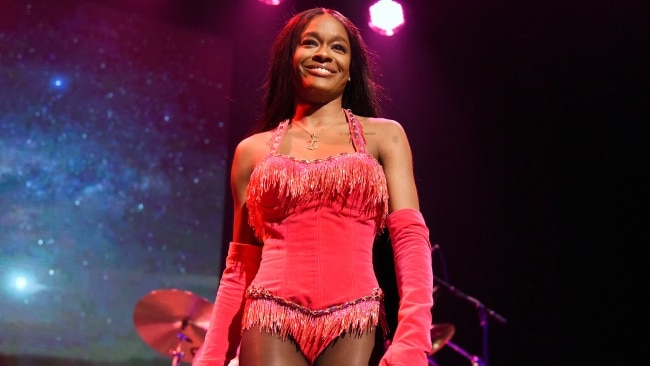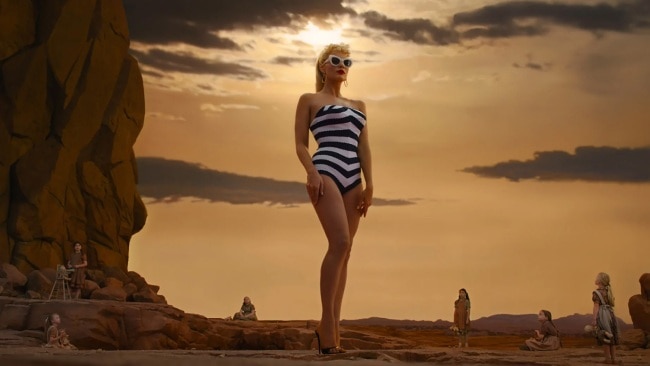Musicians are sick of being forced onto TikTok
Artists are pressured to be more than musicians, they are expected to be content creators who weave their specialty, songs, into a bigger content ecosystem.
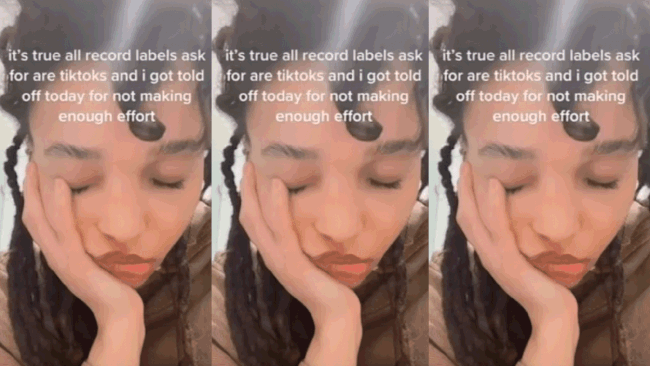
Artists are pressured to be more than musicians, they are expected to be content creators who weave their specialty, songs, into a bigger content ecosystem.
Halsey has, ironically, gone viral for a TikTok, protesting their record label barring them from releasing a “song I love” for marketing reasons. “Basically, I have a song that I love that I want to release ASAP, but my record label won’t let me.”
“I’ve been in this industry for 8 years and I’ve sold over 165 million records,” they wrote. “And my record company is saying that I can’t release it unless they can fake a viral moment on TikTok.”
Charli XCX, Florence + The Machine, and FKA Twigs have all taken to TikTok to air their dead-eyed grievances over management pressure to have a presence on the app (“The label are begging me for ‘low fi tik toks’ so here you go. pls send help ☠️ x").
Artists are pressured by their labels to be more than musicians, they are expected to be content creators who weave their specialty, songs, into a bigger content ecosystem. Carefully constructed, but preferably low-fi, videos for the 'happiest corner of the internet' are forced on musicians.
We know that the TikTok machine is a powerful marketing tool for musicians and labels. It’s made artists (Peaches PRC, Lil Nas X); revived careers that had otherwise gone to the dogs (Jason Derulo with ‘Savage Love’); and landed songs from yesteryear back on the charts (Fleetwood Mac’s ‘Dreams’.)
What’s concerning, however, is the uptick of labels asking musicians to hold off on finished work in favour of drip-feeding music to the TikTok audience, and, to quote Halsey, “fake a viral moment.”
There’s a trend: Musicians will take to TikTok with early sketches of songs, asking for input and feedback. Sharing the creative process leans to emotional investment from an audience, and builds a narrative from the genesis of the song until its release, with the goal being streaming success.
It’s so ubiquitous that creators have started parodying it: @moldogga recently went viral for a video taking the mickey out of artists that ‘leak’ their songs on the app. It’s near impossible to differentiate between moments that are genuinely organic and marketing campaigns carefully crafted by marketing savants in New Balance 550s.
For the blessed few with a knack for content creation, it’s a strategy that works — but it’s a game for the young and burgeoning. What of the musicians that have established decade-long careers, or those that ‘content’ doesn’t come naturally to? What will become of art if we expect musicians to meet the audience’s insatiable content demand? Burnout, probably.
Artist manager Uda Widanapathirana said there needs to be an alternative to “artist-driven” marketing.
“There’s going to be a cycle. This enormous content demand isn’t good for the longevity of an artist's career, it will shorten it. An artist might be one album away from creating the best, most influential thing in existence but because of the content pressures that are put on them, from audience demand, they’re going to walk away from it.”
“I think for every artist, artist-led marketing isn’t necessarily the vibe,” they said. “I would like to see different types of narratives being built around music that isn’t about personal stories or individualism.”
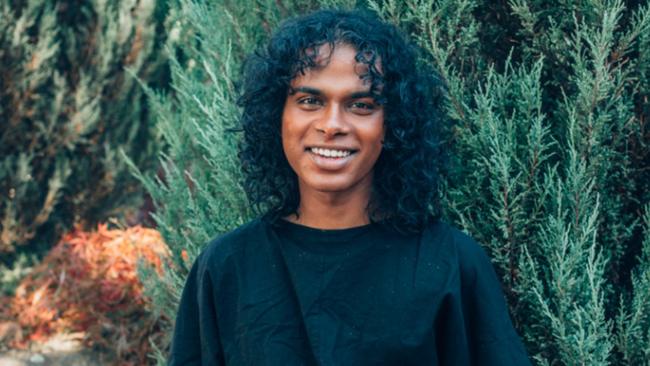
Peddling the air of ‘authenticity’ is TikTok’s bread-and-butter. “What really works is the authenticity, and being very genuine in the platform,” said Anna Gruszka, music content strategist at TikTok.
Uda argues that it’s not authenticity audiences are looking for, but detail. “They’re looking for a canon, a lore with specifics.”
Taylor Swift created the blueprint for how strategic social media twisted into a masterful body of work generates the kind of results marketers dream about.
Sure, everyone values authenticity. But in the entertainment industry, people want to be entertained. An exciting, even constructed, narrative does that.
“I think music is caught up on this concept of authenticity which can be quite toxic, really it’s just about creating a rich narrative as opposed to a real narrative.”
That’s where the likes of Halsey are caught up.
So where does this leave artists? Uda proposes a solution: vibes.
In a New Yorker piece about TikTok and the vibes revival, Kyle Chayka wrote that “increasingly, what we’re after on social media is not narrative or personality but moments of audiovisual eloquence.” The industry can learn from this.
"You can only commodify an individual so much before an artists breaks down. So you need to get more creative with it, and allow everyone to step back," Uda said.
“You can create an image with an artist that will protect them,” Uda said. “It’s a lot to ask an artist to put their entire heart to the world. If marketing teams and artists can work together to figure out a core idea, those materials for the videos that are created can be outsourced to people that are not the artist. It would alleviate the pressure on the artist to generate the content.”
It is possible for a song or artist to go viral without artist-driven promotion. Take the bizarre case of Mitski, who, at the perch of her success, and burnt out by the demands of the industry, “retired’ from music in 2019, became a recluse and went offline.
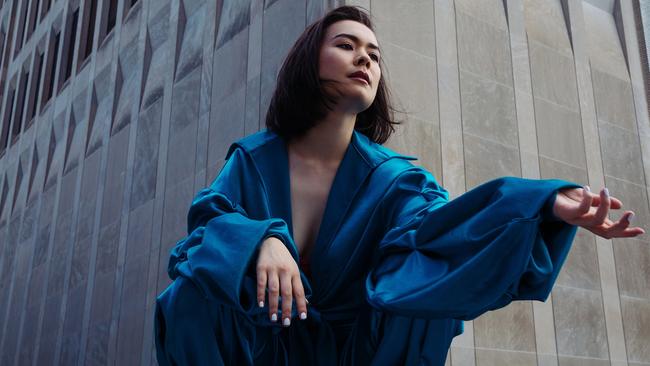
A strange thing happened during her three year absence: Mitski became massive on TikTok, thanks to a comic trend set to her breakout single ‘Nobody’. As of writing, her music has soundtracked over 2.5 million user-generated videos, #Mitski has been viewed 2.4 billion times, there’s a dedicated corner of the app #MitskiTok with 278 million views.
It’s a success that Mitski had no involvement in, and, by her admission, one she doesn’t quite understand. Labels should take note. Mitski is an example of the TikTok ecosystem working in symbiosis with the music. An alternative to marketing that tries to sell the audience an artist’s intention, and instead allows them to interpret. “TikTok shouldn’t be about creating enough content for a video to go viral,” Uda said. “It’s about planting seeds, so people can engage with a core idea and make it their own.”
“Think back to your formative years. When you listened to music, and you really liked something, you probably didn’t have any context to why you liked it. That’s the most powerful thing about music. When you engage, you create your own meaning. That is outside of the intention of the artists, it was just something you created."
"That is why TikTok is so powerful. It pours fuel on the capacity to create value from engaging with something."
You can’t make a value judgement about whether TikTok is good, or bad, for the music industry. For the foreseeable future, its stake in culture won’t be changing. If the industry wants to play the game, it needs to find a way to do so that doesn’t risk artists burning out.

